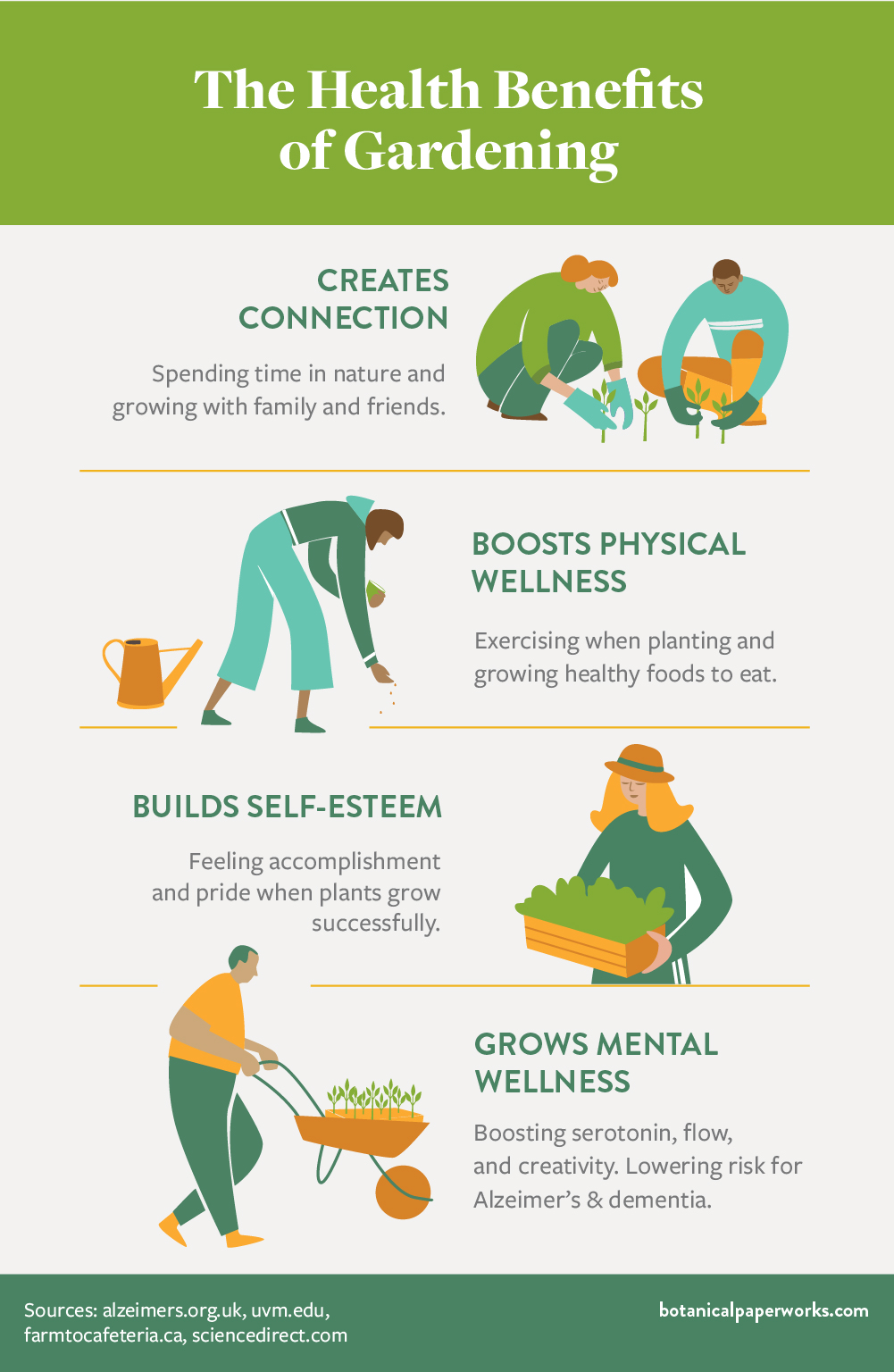Gardening is more than just a hobby – it can be an incredibly important tool for improving our overall mental health. Whether it’s tending to a small balcony garden with mismatched pots of herbs or cultivating a generous backyard enclave, spending time with plants offers numerous psychological benefits that often go beyond mere aesthetics.
Especially relevant now at a time when depression and anxiety continue to be serious public health concerns. According to a National Study of Mental Health and Wellbeing, 42.9% of people aged 16–85 years had experienced a mental disorder at some time in their life, with anxiety being the most common group (17.2%).
Gardening is a go-to for stress relief
One of the most significant benefits of gardening is stress reduction. Digging, planting, and watering can provide something of a calming rhythm that helps quiet the mind and reduce anxiety and stress. Studies have shown that exposure to green spaces can lower our cortisol levels, the hormone linked to stress, and even just 15-30 minutes a day in the garden can lead to measurable improvements in mood and overall well-being.
“We might think we are nurturing our garden, but of course it’s our garden that is really nurturing us.” – Jenny Uglow
Gardening also encourages mindfulness
The act of caring for plants requires us to focus on the present moment – observing growth, responding to changes in weather, and adjusting our routines accordingly. This focus helps distract us from any pressures of day-to-day life or just by offering up a kind of mental break that allows us to recharge our batteries, so to speak. Something as simple as a cup of coffee or tea whilst gazing out a window onto a garden can decrease any mental fatigue we may be feeling.
Gardening boosts your self-esteem
In addition to stress relief, gardening boosts self-esteem and provides a sense of accomplishment. Watching plants thrive under your care reinforces a feeling of purpose and control, which can be particularly valuable for those dealing with depression or anxiety. The routine involved in garden maintenance also provides structure, often leading to a good grounding during challenging times. And social connections such as community gardens and plant-sharing groups foster interactions that can reduce any feelings of loneliness.
Gardening is great for regular physical activity
Gardening in itself promotes regular physical activity and time spent outdoors—both known ways to enhance our mental health. Sunlight exposure increases vitamin D levels, improving mood and energy and in a fast-paced world showing no signs of slowing down, gardening offers a natural and restorative escape from it all. Whether you’re just planting vegetables, flowers, or cacti and succulents, the act of nurturing life in a garden can also help to nurture your own mental well-being in return.
It seems apt to finish with the often-used garden adage ‘to stop and smell the roses’ whenever you feel like you might need to take time out from a busy schedule in order to enjoy and appreciate the beauty of life. And even if you’ve never gardened before, it’s never too late to start. Creating a safe and relaxing outdoor space of your very own, whether it’s flooded with flowers, insects and colour or simply a cosy seat or bench upon which to enjoy a drink, recharge and simply switch off for a while.

